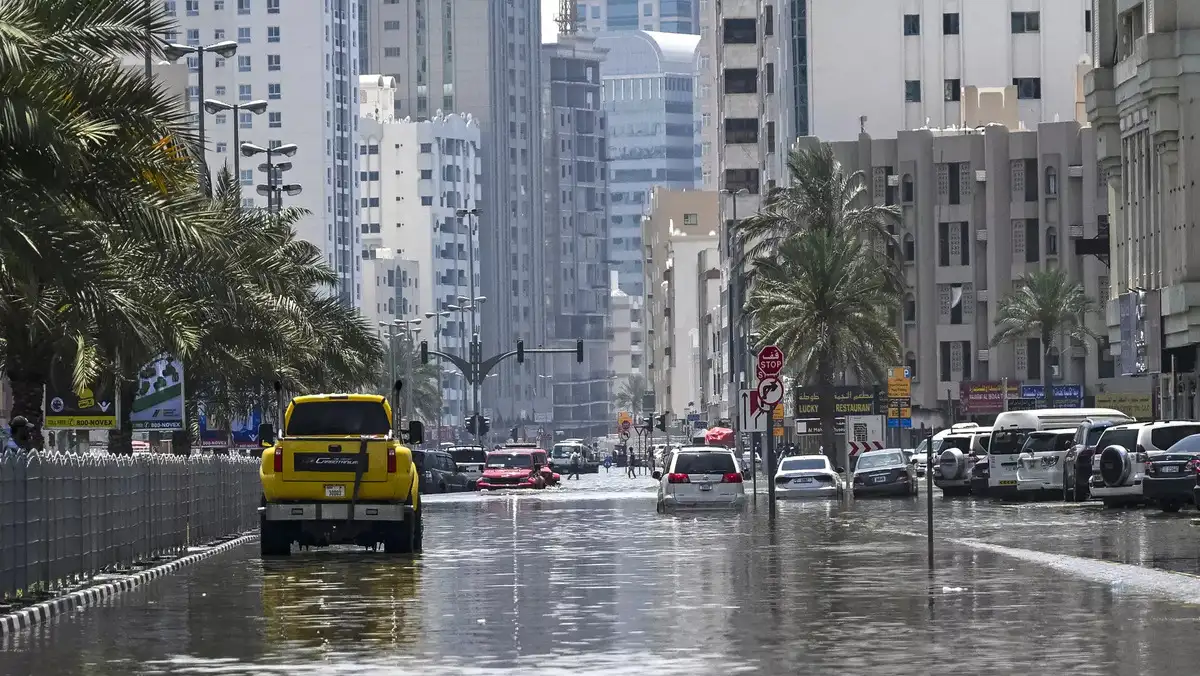Now Reading: UAE Floods: Are You Claiming Your Car Insurance Right 2025?
-
01
UAE Floods: Are You Claiming Your Car Insurance Right 2025?
UAE Floods: Are You Claiming Your Car Insurance Right 2025?

Table of Contents
The recent record-breaking floods in the United Arab Emirates (UAE) have left thousands of vehicles damaged, and many residents are now turning to their insurance companies for help. But if you live in the UAE and your car was flooded, do you know how to make a claim? Understanding how car insurance works during a natural disaster is crucial, as even a simple mistake could lead to a denied payout.
From Dubai to Sharjah and Abu Dhabi, the heavy rains in April 2024 created scenes of submerged roads, floating vehicles, and severe traffic standstills. In just a few hours, entire neighbourhoods went underwater, and countless residents were left with damaged or destroyed cars.
According to insurance experts, UAE car owners must act fast but carefully to protect their rights and ensure they get the money they deserve.
What Type of Insurance Covers Flood Damage?

In the UAE, there are two main types of car insurance:
- Third-party liability insurance
- Comprehensive insurance
Third-party insurance is the minimum legal coverage, but it does not cover natural disasters like floods. This means if you only have third-party insurance, you will have to pay for flood damage repairs yourself.
Only comprehensive insurance typically covers flood damage, including damage from rainwater or storms. However, even comprehensive insurance has rules and conditions, so reading your policy is essential before you make a claim.
What You Should Do After a Flood
If your car was affected by the floods, insurance experts recommend following these important steps:
- Do not start the car – Turning on a water-damaged car can cause even more problems, making the insurance process harder.
- Document everything – Take photos or videos of the damage, including the surroundings. This will be proof for your claim.
- Call your insurance provider immediately – Report the claim as soon as possible. Many insurance companies in the UAE have hotlines or apps for fast claims.
- Tow your vehicle to an approved garage – Avoid repairing the car on your own, as unauthorized repairs might invalidate your claim.
- Keep all receipts and records – This includes towing costs, which may also be reimbursed.
Remember that you must follow your insurer’s rules exactly. Any mistake or delay can give them a reason to reject your claim.
Why Are Some Claims Rejected?
While comprehensive insurance is designed to cover floods, insurance companies in the UAE may still deny claims under certain conditions, including:
- Negligence: For example, if you drove into a flooded area against warnings.
- Modified vehicles: If you made unauthorized modifications to the car that affected water resistance.
- Delayed reporting: Waiting too long to inform the insurer.
Experts say that many drivers do not fully read their policy terms and only discover exclusions during a crisis.
The Growing Pressure on Insurers
The UAE insurance sector is facing huge pressure after these recent floods. Industry analysts estimate the total vehicle claims from the April floods could cross AED 500 million, given the scale of damage across Dubai, Sharjah, and other emirates.
Insurance companies have reported thousands of claims in just a few days. This has forced many of them to deploy extra staff to handle calls and process the paperwork.
Some residents have complained of long waiting times and unclear answers from insurers. Experts suggest being patient but persistent. Always ask for a claim reference number, and follow up in writing if you feel the claim is moving too slowly.
How Long Will Claims Take?
Normally, a car insurance claim in the UAE may take 7–14 working days, but during floods, this can stretch to several weeks because of the high demand. Spare parts shortages and delays in inspections can add to the waiting period.
Industry professionals recommend maintaining frequent contact with your insurer to avoid getting stuck in the backlog.
Tips to Protect Yourself in the Future

The UAE is experiencing more extreme weather events, and many residents are worried about future floods. Here are simple ways to protect yourself and your vehicle:
Choose comprehensive insurance with natural disaster coverage
Read the fine print of your policy every year
Avoid driving through flooded roads whenever warnings are issued
Keep your insurer’s contact handy in case of emergency
Consider parking on higher ground during heavy rain
Car insurance may feel like an extra expense, but it can save you thousands of dirhams when nature strikes.
The Road Ahead
Climate change is increasing the risk of flooding across the Gulf region, experts warn. The UAE’s authorities are working on better drainage systems and infrastructure upgrades, but drivers must also stay alert and prepared.
If you own a vehicle in the UAE, now is the time to review your insurance policy. A comprehensive policy with flood protection is the best way to protect yourself from the financial shock of a natural disaster.
Remember: insurance is not just about protecting your car — it’s about protecting your peace of mind.
Read More:- Deyaar’s Latest Announcement Shakes Up the UAE Property Market





















